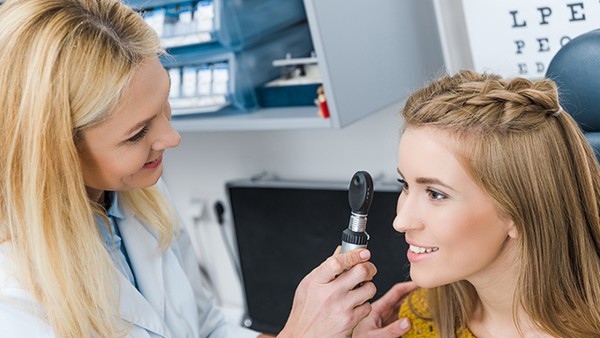How to Provide Good Care

Providing good care involves fulfilling the basic needs of individuals, providing assistance and comfort, and ensuring their well-being. It requires patience, empathy, and a genuine desire to make a difference in the lives of others. Whether you are caring for a loved one, a patient, or a client, there are essential guidelines to follow to provide the best possible care.
1. Establish a Strong Relationship
Building a strong and trusting relationship with the individual you are caring for is paramount. This involves:
- Active listening: Paying undivided attention to what they are saying, both verbally and nonverbally.
- Empathy: Understanding their feelings and emotions from their perspective.
- Respect: Treating them with dignity and respect, regardless of their age, ability, or background.
- Communication: Communicating clearly and effectively, both verbally and nonverbally.
- Trust: Earning and maintaining their trust by being reliable and consistent in your care.
2. Provide Physical Care
Physical care involves meeting the basic needs of the individual, such as:
- Hygiene: Maintaining proper hygiene by bathing, brushing teeth, and assisting with other activities as needed.
- Nutrition: Ensuring adequate nutrition by providing healthy meals, snacks, and fluids.
- Mobility: Assisting with mobility by providing aids, such as wheelchairs, walkers, or canes.
- Medication: Administering medications as prescribed and monitoring for any adverse effects.
- Medical care: Coordinating with healthcare professionals and providing assistance with medical appointments or procedures.
3. Provide Emotional and Mental Care
Emotional and mental care involves providing comfort and supporting the individual's well-being:
- Emotional support: Being present, providing a listening ear, and offering words of encouragement.
- Companionship: Spending time with the individual, engaging in activities they enjoy, and offering social interaction.
- Cognitive stimulation: Providing cognitive stimulation through activities that challenge and engage the mind, such as games, puzzles, or reading.
- Mental health support: Recognizing signs of mental health issues and collaborating with mental health professionals as needed.
4. Provide Spiritual and Cultural Care
Spiritual and cultural care involves respecting and honoring the individual's beliefs and values:
- Spiritual care: Addressing spiritual needs by providing opportunities for prayer, meditation, or connection with religious communities.
- Cultural care: Understanding and respecting the individual's cultural background and incorporating it into their care.
- Respect for traditions: Acknowledging and supporting the individual's cultural traditions and beliefs.
5. Ensure Safety and Well-being
Ensuring the individual's safety and well-being is a crucial aspect of good care:
- Physical safety: Preventing accidents and injuries by creating a safe environment and monitoring their surroundings.
- Emotional safety: Providing a safe space where the individual feels comfortable expressing their feelings and emotions.
- Mental safety: Protecting their mental health by creating a safe and supportive environment.
- Social safety: Promoting social engagement and connections to prevent isolation and loneliness.
6. Respect Privacy and Dignity
Respecting the individual's privacy and dignity is essential:
- Privacy: Maintaining the individual's privacy by ensuring their personal information and belongings are confidential.
- Dignity: Treating the individual with respect and dignity in all aspects of care, empowering them to make choices and maintain their independence.
7. Be Patient and Compassionate
Providing good care requires patience and compassion:
- Patience: Understanding that each individual has unique needs and abilities, and not rushing them or becoming frustrated.
- Compassion: Showing empathy and understanding for the individual's situation, both physically and emotionally.
8. Seek Professional Support When Needed
Recognizing the limitations of your own knowledge and skills is important:
- Collaboration: Collaborating with healthcare professionals, such as nurses, doctors, or social workers, when necessary.
- Seeking guidance: Seeking professional guidance for specialized care or complex situations.
9. Evaluate and Adjust Care Regularly
Providing good care is an ongoing process that requires regular evaluation and adjustment:
- Assessment: Regularly assessing the individual's needs and making adjustments based on their changing circumstances.
- Feedback: Seeking feedback from the individual and others involved in their care to continuously improve.
The Importance of Providing Good Care
Providing good care has numerous benefits for both the individual receiving care and the caregiver:
- Improved quality of life: Good care enhances the individual's quality of life by meeting their physical, emotional, and social needs.
- Reduced stress and anxiety: Proper care reduces stress and anxiety for the individual and their family members.
- Increased independence: Good care empowers the individual to maintain their independence and perform daily tasks as much as possible.
- Enhanced well-being: A well-cared-for individual experiences improved physical, mental, and social well-being.
- Meaningful connections: Providing care creates meaningful connections between caregivers and individuals, fostering a sense of purpose and fulfillment.
Conclusion
Providing good care requires a multifaceted approach that addresses the physical, emotional, spiritual, and cultural needs of the individual. Establishing a strong relationship, providing physical and emotional support, ensuring safety, respecting privacy and dignity, and seeking professional assistance when needed are essential aspects of quality care. By following these principles, caregivers can make a profound difference in the lives of those they care for, enhancing their well-being and fostering a sense of purpose and fulfillment.
The above is all the content that the editor wants to share with you. I sincerely hope that these contents can bring some help to your life and health, and I also wish that your life will be happier and happier.
Topic: #to #how #provide











